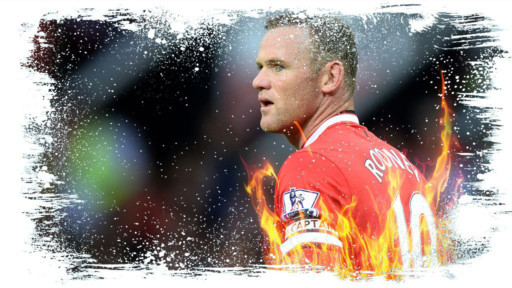
There was controversy the other week when it was discovered what the Oxford English Dictionary had done with the word “literally”.
But I’m going to anyway.
Do you know what the OED has done with the adverb “literally”? We all know what it means. If someone says: “There are literally five soldiers left alive from a platoon of 28” we understand that 23 soldiers have been killed. I intentionally use such a stark example to emphasise the finality of a statement containing the world “literally”. It is a precise definition. If you use “literally”, then you mean what you say. Or, at least, that’s how it should be.
However, people being what they are and possessing vocabularies that aren’t what they might be, the word gets misused. Football pundit Jamie Redknapp recently described Manchester United striker Wayne Rooney as being “literally on fire”. On closer inspection it transpired Mr Rooney was merely having a good game.
Similarly, singer Rachel Stevens said her legs: “literally turned to jelly” when she appeared on Strictly Come Dancing. I’m not a doctor, but I’m reasonably sure that human flesh, sinew and bone cannot, within the bounds of accepted medical science, transmogrify to a dessert made from sweetened fruit juice and pectin.
And I know several people who have claimed to have “literally laughed their head off”. I only wish that were true.
We should be amused at any fool who says they have jelly legs or that a football player was aflame. Though we might laugh (hopefully with our heads staying in place) it seems the OED does not. The latest edition of the dictionary states that literally means “in a literal way or sense”, which is fine. But then it adds that, informally, the word can be “used for emphasis rather than being actually true” such as “we were literally killing ourselves laughing”.
“Used for emphasis”? They reckon that literally, now has the same value as “really” or “very” or even “almost”. The dictionary’s senior editor, Fiona McPherson, in explaining this said: “Our job is to describe the language people are using. The reason this sense was included is that people are using the word in this way”.
Ms McPherson, I respect your position and I understand your point of view, but I couldn’t disagree more with your statement. In fact, I am appalled! The job of a dictionary compiler is to accurately define what words mean. They should show how the language should be used.
To change any word’s meaning “because people use it in this way” is to concede guardianship of the language to people who use it incorrectly. The lunatics would have taken over the asylum.
The Oxford English Dictionary should set an example, not bow down to sloppy word usage. This is wholly wrong. I feel I must delve into the world of idiom to communicate my depth of feeling. I am spitting feathers, driven up the wall and might even go as far as to say I am not a happy bunny.
The frightening thing is that if the OED accept that people can be “literally” on fire, do they also accept I actually did spit feathers, defy gravity by running up a wall or turn into a small rabbit? Surely they would have to.
It is true, the language must evolve, but it should evolve to be a more accurate instrument. The language and the words in it should be honed and refined to give more clarity. It should be allowed, indeed encouraged, to improve.
It should not be dumbed down to become a blunt instrument in which words can mean anything that an excited football pundit or a nervous singer in a dancing competition mistakenly believes they should mean.
This usage of the word “literally” will literally never appear in The Sunday Post.

Enjoy the convenience of having The Sunday Post delivered as a digital ePaper straight to your smartphone, tablet or computer.
Subscribe for only £5.49 a month and enjoy all the benefits of the printed paper as a digital replica.
Subscribe